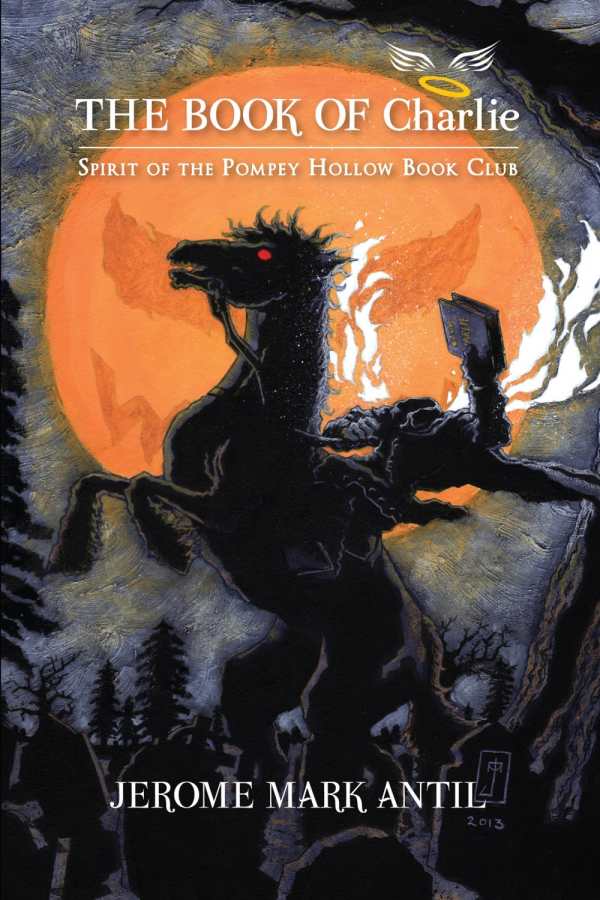
The Book of Charlie
Spirit of the Pompey Hollow Book Club
Antil delivers heartfelt messages of caring and hope in a wholesome young-adult adventure.
It was 1953 and the family farm was alive and well in upstate New York. Whole communities came together to celebrate the harvest or rally around those in need. The shadows of World War II still hovered over the people and colored their lives. In The Book of Charlie, Jerome Mark Antil paints a charming and nostalgic picture of this time and place through the further adventures of the Pompey Hollow Book Club.
In this second book of the series, the kids of the book club are now teenagers, but their appetite for adventure hasn’t faded. When one of them notices a couple of strangers casing the countryside, apparently in search of items to steal, the club is drawn into a mystery bigger than they could have imagined. With the help of President Eisenhower’s grandson, the club president’s pen pal, the group embarks on a journey that intertwines with a war-era military mystery, pulling in a few lost souls along the way.
In this story, it’s easy to see how Antil is influenced by Mark Twain. The narrator, Charlie Pitts, is an old neighbor who passed away in the last book and is now the kids’ guardian angel. His colloquial voice, heavily colored in the local dialect and tinged with wry humor—along with the rural landscape and escapades where childhood innocence bumps up against the fears of the time—are reminiscent of Huckleberry Finn. Though some may find the story to be a little too rambling and saccharine at times, Antil manages to deliver heartfelt messages of caring and hope in a lighthearted, wholesome adventure. “You might take a lesson from this, the ways it was with young people in those days; days when young ones thought more about people around them than they did about their own selves,” Charlie suggests. “Some say it were the quality of their Guardian Angels back then.”
While aimed at a young-adult audience, this book will also appeal to older generations who would enjoy either reminiscing about their childhood or just taking a break from the eleven-o’clock-news style of entertainment to read a book that acknowledges serious issues (such as war, crime, and disease) while remaining eternally optimistic and sweet.
Reviewed by
Christine Canfield
Disclosure: This article is not an endorsement, but a review. The publisher of this book provided free copies of the book to have their book reviewed by a professional reviewer. No fee was paid by the publisher for this review. Foreword Reviews only recommends books that we love. Foreword Magazine, Inc. is disclosing this in accordance with the Federal Trade Commission’s 16 CFR, Part 255.
